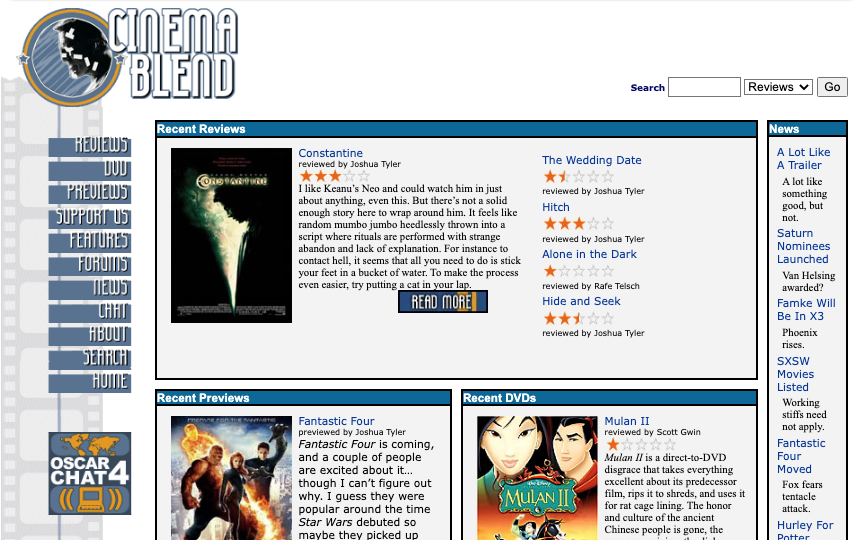Why Remote Work Is The Best Work For Your Business
As the CEO of a remote work company, a big part of my job is pushing to find a balance between putting quality work at the forefront and making sure my employees aren't trapped in a dingy apartment somewhere going crazy from loneliness. Employee burnout is a constant concern and keeping everyone engaged is often an even bigger challenge.
This article is more than 2 years old
Twenty-two years as an entrepreneur and the rest of the world has finally caught up to what people like me have known all along: Remote work is better than in person. It’s not something that started being better last month or with the advent of Zoom, companies like mine have been using remote work as our primary means of getting work done for over two-decades.
At first we used it out of necessity. A media outlet called Cinema Blend was my first business and our mandate was covering movie related events from all over the world. That meant having writers and reporters in numerous, far-flung locations. An office not only wasn’t practical, it simply wasn’t possible for the company I had put together.
Remote work wasn’t easy to set up back in the year 2000. There were hurdles to working remotely that don’t exist now. There was no such thing as video chat (or even audio chat for that matter, unless you wanted to pick up an analog phone). All communication had to be done one on one through message boards and text messengers like AIM or ICQ. There was no way to know if someone you were talking to was in a bad mood or had a wicked head cold, so everyone sort of ignored the personal aspects that go with the job, put their head down and went to work.
Over time my companies grew and changed and so did the technology around remote work. The things that made it great remained the same. So in 2014 when we reached a place where having an office, if you were thinking traditionally, might have made sense… we didn’t. We examined the idea of setting up a physical location carefully, even put together potential move packages to bring all our senior management into one place, then abandoned it when we realized there was nothing an office could accomplish that we weren’t already doing.

In 2015 Cinema Blend was acquired by a more traditional media company, one which believed in a physical headquarters stocked with writers and coders snacking in cubicles. After my exit from the company, against my advice, they moved my far flung team into a series of cubicles locked in a St. Louis office tower. It didn’t exactly work out and the company has since been resold to a great media company called Future, where I’m told they’ve gone back to the remote work atmosphere that built Cinema Blend in the first place.
Everything we do now at TELL ME BEST’s parent company Walk Big is done in a series of remote work environments. We use Asana for task management, Slack for instant communication with text messaging, audio huddles, and a mandatory group video conference once a week for every team just so we can all see each others faces and confirm that, yes, those other people I’ve been talking to all week really do exist and they are wearing shirts.
Advocates of remote work tend to focus on the fact that employees can stay home and work in their pajamas as the method’s primary benefit. They couldn’t be more wrong. Actually, that’s one of its biggest drawbacks. The thing that makes remote work the best choice for your company, if you can swing it, is this: it lets the people who work hardest shine brightest.
Before I started my own company I worked as an engineer at a big semiconductor manufacturer, stuffed in cubicles next to other engineers, living out a bizarre Dilbert comicstrip re-creation. My days were filled with meetings and in-person collaborations, all of which resulted in a promotion strategy that was, at least in part, based on how much the guy promoting liked you. Sure, it was nice if you did good work as well, but bosses don’t promote people they don’t get along with. Office politics is a big player in any in-person work environment and that often means the best person for the job doesn’t get promoted. When that happens the company misses out on someone who could have made them better and the staff around them who might have noticed the error end up demoralized and unlikely to push harder to move forward themselves. It’s especially limiting for introverts who, while often hard workers, suffer when it comes to developing interpersonal relationships.
That simply doesn’t happen in a remote work environment because remote work takes a lot of the “personal” out of personnel. While we do have the occasional meme battle in a slack chat room or spend a few minutes joking around about Johnny Depp, most of what I know about my remote workers is based almost entirely on job performance. Maybe in real life Drew Dietsch isn’t an awesome person, but I’ll never know, since I only see his face three times a week in a video conference and otherwise all of our communication is text messaging back and forth about work. And his work is excellent.

In a remote work environment there is no water cooler to stand around and gossip. There is no judging people for what they are wearing or the bad hair cut they got over the weekend. The little personal information you know about your fellow remote workers tends to be only the things they go out of their way to share. When you see a name flash up in a message box, you associate that name not with a series of judgements about physical or personality characteristics, you associate it almost solely with the quality of their work.
In a fully remote work environment the best person almost always gets promoted. Office politics are largely non-existent. The work is all that matters. Hard working introverts flourish and your company grows faster because of it.
That’s not to say there aren’t problems. A couple of weeks after it happened, I found out one of my employees had a 103 degree fever for three days but never said anything about it and did all their work coughing from their bed. If I’d known I would have demanded they take the day off and watch Netflix until they felt better, but you can’t tell if someone’s sick by the words they’re typing as they do their job.
In a remote work environment an employee’s health and well being becomes almost wholly their own responsibility, because there’s really no way for anyone at work to know how they’re doing. For some employees that’s great, they’d rather have a clear line between work and home life, a line which no one can ever cross. For others, particularly extroverts, it’s a curse and a burden, one which probably isn’t great for their mental health.
So maybe remote work is good for your business, but is it actually humane? Is spending all day in your PJs a healthy way to live? There’s a good argument to be made that, for some individuals at least, it definitely isn’t. And as the CEO of a remote work company, a big part of my job is pushing to find a balance between putting quality work at the forefront and making sure my employees aren’t trapped in a dingy apartment somewhere going crazy from loneliness. Employee burnout is a constant concern and keeping everyone engaged is often an even bigger challenge. Easy video conferencing has turned out to be a salve for some of that isolation, but it’s not the full solution. Maybe one day we’ll find it, but while we’re looking, it’s clear that remote work is the best way to run any business.








